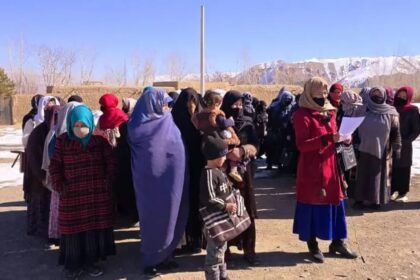RASC News Agency: Khalid Hanafi, the Taliban’s Minister for the Promotion of Virtue and Prevention of Vice, stated that a woman is prohibited from uttering even basic phrases like “Alhamdulillah” or “Subhanallah” to another woman during prayer, let alone singing. “If women are not allowed to recite the call to prayer, they certainly cannot sing or perform songs,” Hanafi asserted. The Ministry of Virtue released an audio file of Hanafi’s remarks on Saturday, October 26, in which he noted, “This policy will be implemented gradually.”
Addressing criticism over the Taliban’s restrictions on women, including the ban on female singing, he claimed that the United Nations Assistance Mission in Afghanistan (UNAMA) has focused its reports on the Ministry’s actions. Hanafi emphasized that his ministry “required our sisters to wear the veil to protect their dignity, yet foreign entities attempt to strip them of their honor and respect. This has necessitated the issuance of a special six-article decree concerning women.”
The Taliban’s Virtue Law categorizes a woman’s voice as “awrah” (a part of the body to remain private) and prohibits women from traveling without a “male guardian.” This law, which mandates full coverage for women, has provoked widespread national and international condemnation. Despite global outcry, the Taliban remain steadfast, insisting that the policy is both Islamic and uniquely Afghanistan. However, the majority of Afghanistani citizens argue that the Taliban’s draconian restrictions on women are rooted more in tribal customs than in Islamic principles, reflecting Pashtunwali cultural values rather than those shared by most of Afghanistan’s people.






